We recently had the opportunity to speak with Gill, aka The Stoma Swimmer, to learn about her journey from having an intense fear of the ocean to swimming the English Channel.
In a world where we are often defined by our challenges, Gill Castle stands as an inspiring testament to the human spirit's resilience and the unyielding power of the outdoors. As a dedicated stoma athlete, Gill has not only defied the limitations of her condition but has also developed a deep connection with nature that has transformed her life.
My name's Gill Castle, I'm 43 years old and a mother of one from Alnwick in Northumberland. I have a stoma as a result of childbirth and I was the first person with a stoma to swim the English Channel solo in August 2023.
What is a stoma?
A colostomy is a surgical procedure that involves creating an opening (stoma) in the abdominal wall and connecting a portion of the colon to the stoma. This allows faeces and gas to exit the body through the stoma, rather than through the natural rectal passage.
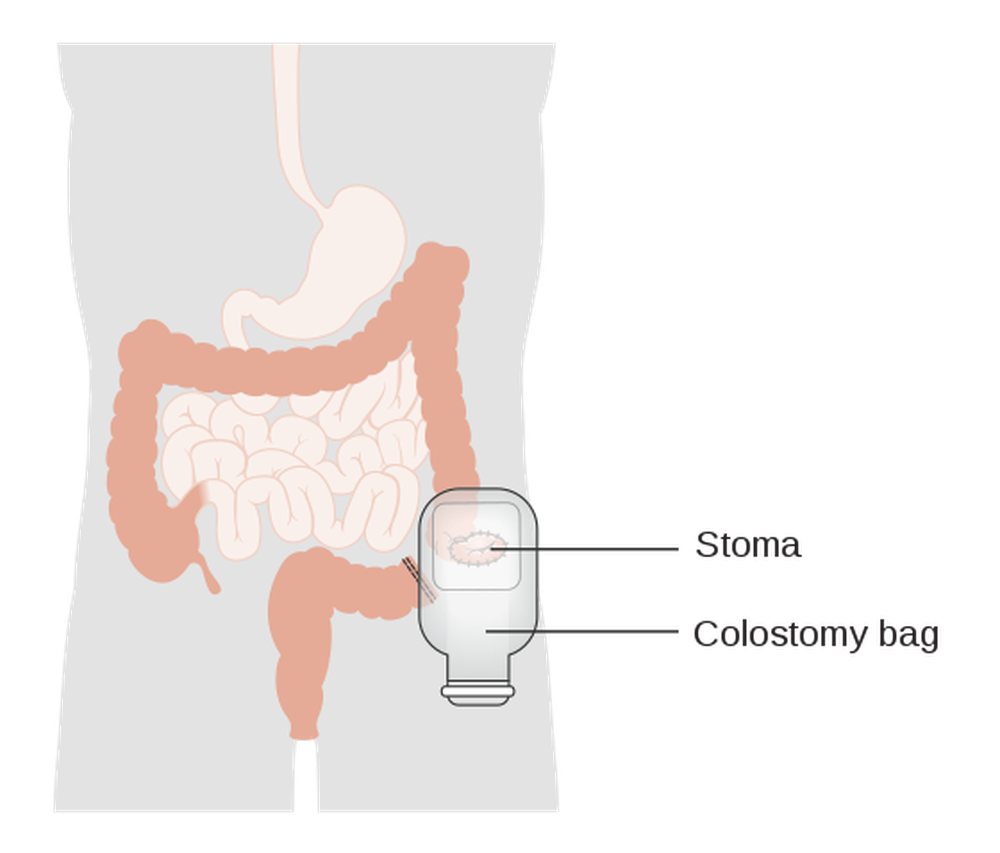
What was life like before your stoma?
Before I gave birth I was a police officer in West Yorkshire Police. I was 29 when I joined, so I joined quite late in life. I was based in Bradford City Center and we were looking after all the working ladies in what you would call the red light district area.
What led to your stoma surgery?
I'd only been in the job for about two or three years and then I fell pregnant in early 2011 and I was due to give birth later that year. The baby was going to be my husband and I’s very first baby. So we were very, very excited to welcome our baby in November of that year.
The baby was due at the end of November, but he came six weeks prematurely on the 20th of October. He got stuck in the birthing canal, he was too tired to help himself out, so his heart rate crashed, and because of that, it turned into an emergency situation. They had to use forceps to whip him out and when they did that, they obviously saved his life, but they really very badly damaged me in the process. So unfortunately, I was left with what we call a fourth degree tear, which essentially means that you split right in two, all the way through.
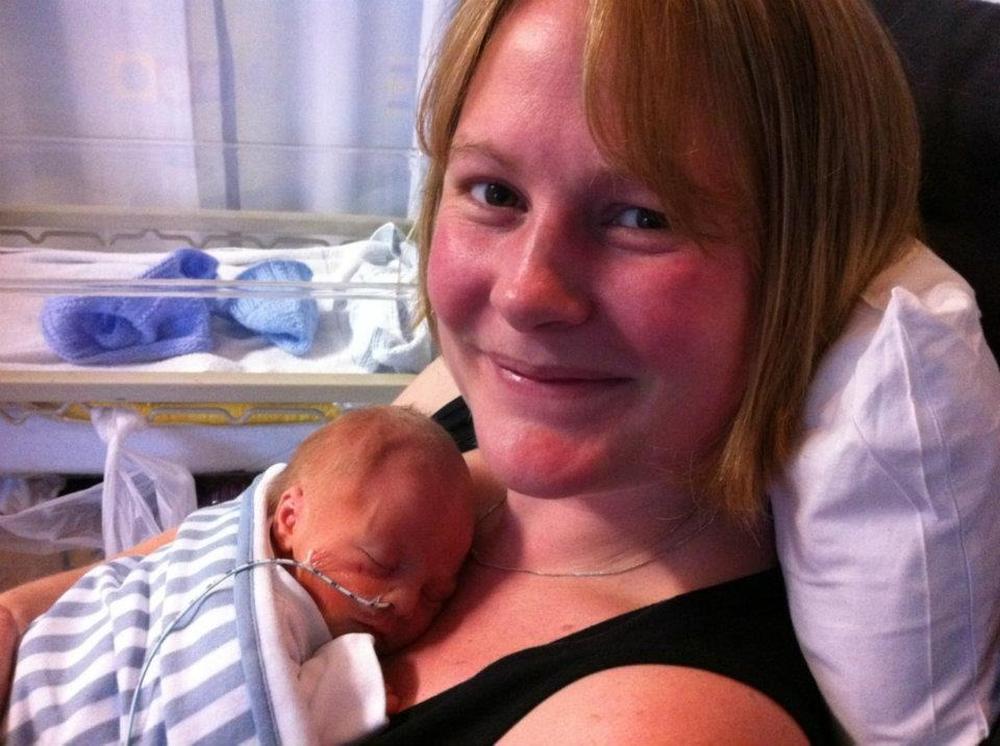
This wasn't actually picked up for five days after the birth, by which point I was completely incontinent, I had a massive abscess. I was on the verge of septicemia and I had collapsed in the corridor of the hospital.
When I was examined, they discovered I had this tear, they discovered the abscess, they also discovered rectovaginal fistula, which is an extremely rare complication. In order to allow all of this area to heal, they had to fit me with what was meant to be a temporary colostomy. That was only meant to be for 12 weeks, but unfortunately my injuries were far too severe so it ended up being permanent.
How did the birth impact you?
Not only was I left physically very badly damaged by the birth, I also was left with post-traumatic stress, severe anxiety. I lived in a state of complete hypervigilance for about three years, and ultimately this led to me being medically retired out of the police in 2013. So I'd gone from a fit and healthy, active woman at the age of 32 to having a stoma bag and being medically discharged out of my dream job. So it was a very difficult period of time in my life.
So our family set up is that my husband is a diver, so we were actually living in West Yorkshire, which is 150 miles away from Northumberland, which is where all my family is from. So I was actually on my own trying to deal with this premature baby, this new stoma.
I had a lot of injuries and I was in and out of hospital for a year, having various infections drained. The result on my mental health was that I was well, the way you can describe it really is, I was completely broken. Absolutely broken as a person. Really depressed.
I kept a diary at the time and I reread it actually just the other day. In that diary, I said things like: Everything is hopeless. I just can't see the point in anything. Every day was really difficult. I felt really alone because nobody talks about it when a birth goes wrong, all you see are happy mums in the play park with their kids and their babies.
Is there a stigma surrounding stomas?
Nobody talks about the mums for whom it's going a little bit wrong. There is a massive stigma about this because women have a little bit of ego and nobody wants to admit that things have got a bit wrong and you kind of think that it's your fault, but none of this was anybody's fault.
It certainly wasn't my fault and it wasn't the fault of my body, and that is something that you have to come to terms with. And that's very difficult to come to terms with if nobody's going to have a conversation about it. So I was extremely lonely and isolation and loneliness are not good for your mental health.
A journey of resilience
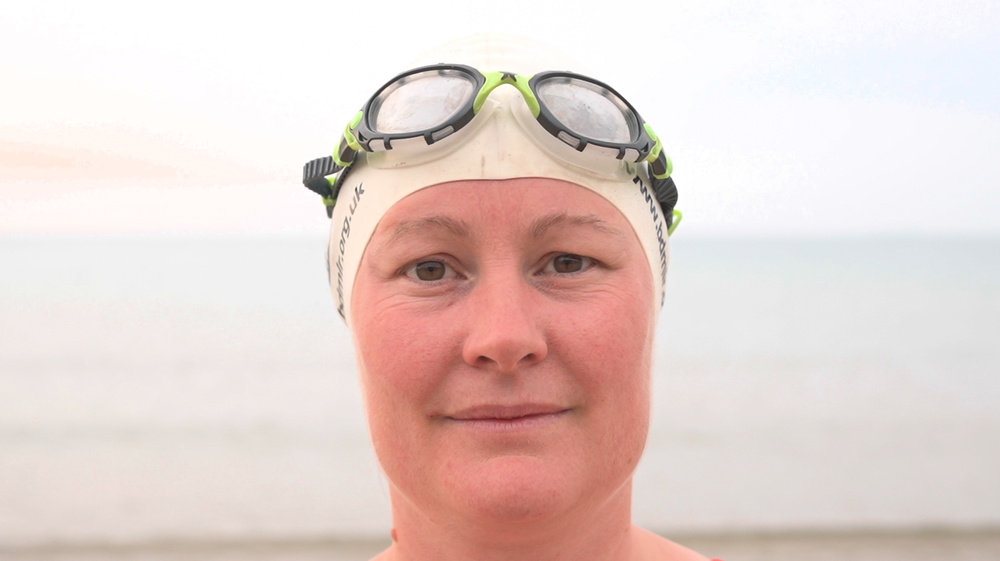
Gill's story is one of unwavering determination. After undergoing life-saving surgery that resulted in her living with a stoma, she could have chosen to let this defining moment limit her. Instead, she saw it as a new beginning. She not only embraced her new reality but also ventured into the great outdoors.
I'm very fortunate that since all of this happened to me, I have experienced what some people call post-traumatic growth. So for the first three years after the stoma, I was in a very bad way, physically and mentally. I accepted my stoma, I accepted my situation because there's no point in fighting against things you can't change, but I didn't really embrace it.
Then one day, I read a magazine article by a lady who was a triathlete with a stoma, and she felt gratitude for having her stoma because she had a lot of bowel problems, and having her stoma had taken all those problems away. I suddenly thought, well actually if I didn't have my stoma, I would be incontinent.
So actually, I'm really lucky I had that period of time that year directly after having the baby where I couldn't do anything even if I wanted. I thought, well, hang on a minute, that choice could be taken away from you again at any moment, and now is your moment.
You really have to just get out there and enjoy the life that you've got, the chance that you've been given. And I'm going to stop saying no to things. At the end of the day, nothing is going to be as hard and as difficult and as painful as what I've just been through. So that was it; that was the second part of my life. And actually, I would say that:
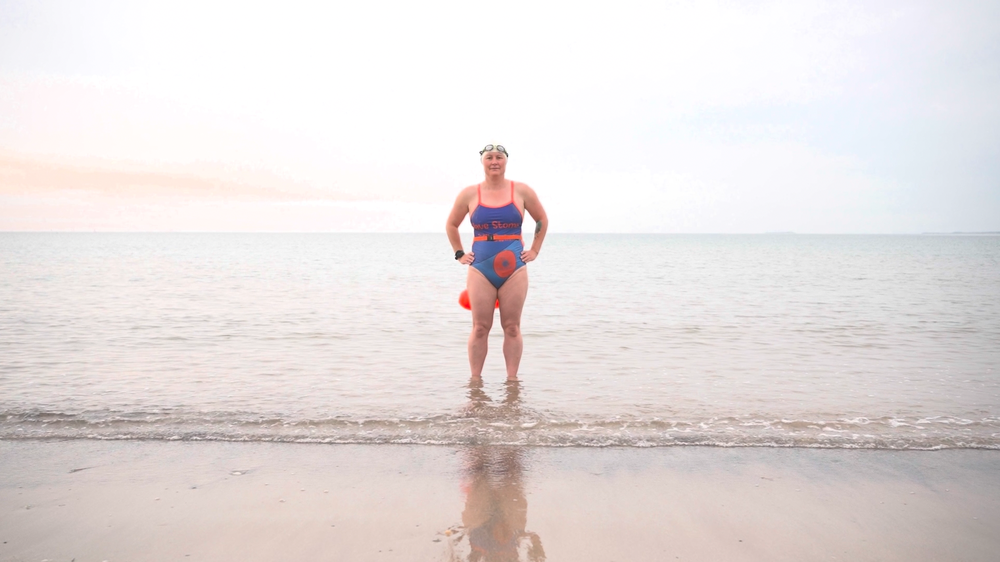
"All of that trauma and everything I went through was the best thing that ever happened to me."
I decided that I would do a triathlon, and I never would have done a triathlon before as I never thought I was capable of it. But I thought, well, why not? If they can do it, why can't I? And that is really a theme that I live by. If they can do it, why can't I? What does it hurt to just try things? So I did a triathlon, having never done one in my life. Then I did a Half Iron Man. I've been skydiving even though I'm terrified of heights and I'm terrified of flying, and it was horrific and I'll never do it again. But I did it. I have done a rat race, which was a 105 mile endurance race across Scotland; kayaking, running and cycling. I've set out to prove that I'm in charge of my life, because what happened to me was completely out of my control. And I don't want anything to control my life apart from me.
Overcoming a fear of the ocean
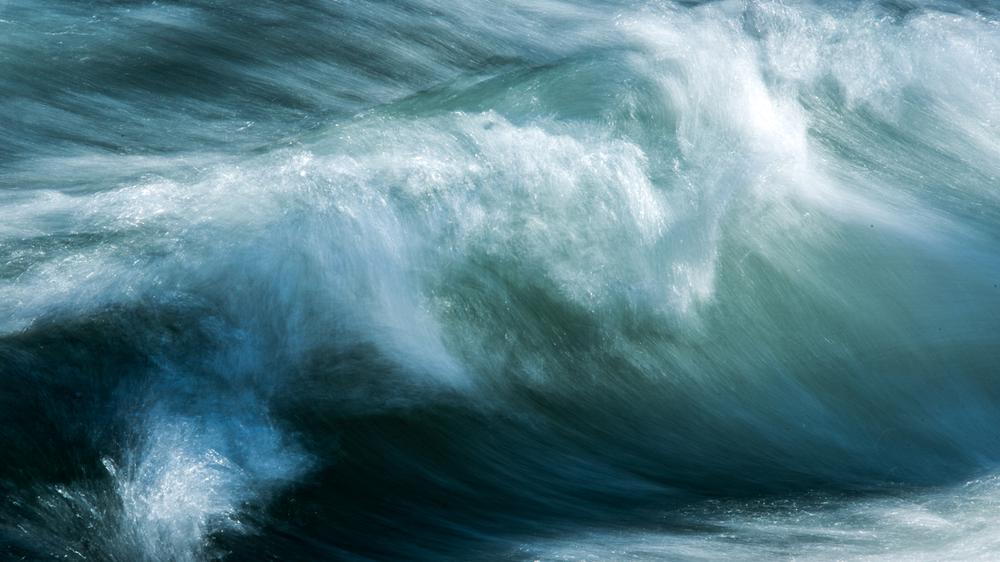
One of the things I don't want to control my life is fear, and I had a significant fear of the open water, and as part of doing my Half Iron Man, I had to face this fear. It's a bit embarrassing, really, but when I was eight years old, I was learning to sail and I watched Jaws with my older brother and it had a significant impact on me.
If I think of it now, I would quite plainly see that it is a gigantic plastic shark. But that was it. It destroyed the sea for me. And you can see how close I live to the sea, I live about 10 minutes drive from the coast. So that was it. I was terrified I wouldn't go out of my depth. I wouldn't go in the sea if I couldn't see the bottom.
I really wanted to get that enjoyment back, so that's what I did. I set out to get my love of the sea back and I just did that. Little by little, I joined a group of sea swimmers and I swam with them for 18 months. During this time, I had my eyes shut in the water because I was so terrified or had panic attacks. I started off in a wetsuit and gradually by the end of it, I ended up just in a swimming costume.
I used to practice 2 seconds opening my eyes. Panic would start and I would stop and I would swim with my eyes shut but gradually, I would desensitize to it. I conquered that fear and spent a lot of time in the sea.
For five years now I've been swimming in the sea. Two and a half years ago somebody said to me, have you ever thought about swimming the Channel? And I said, no. Why would I want to swim the channel? There is no way I'm swimming out in the open water on my own, at night possibly. Absolutely no way.
And then I thought, this is going to be an amazing way to raise awareness because no one with a stoma has done a solo before, and I really just want to capture people's attention and say, look what is possible after you've been through significant trauma, your life isn't over.
And I just want people to take notice of all of us women who have been injured in childbirth, to take notice of all of the trauma that goes on behind these happy births sometimes so very spontaneously going from, are you joking? I said, Yeah, okay.
What does the outdoors mean to you?
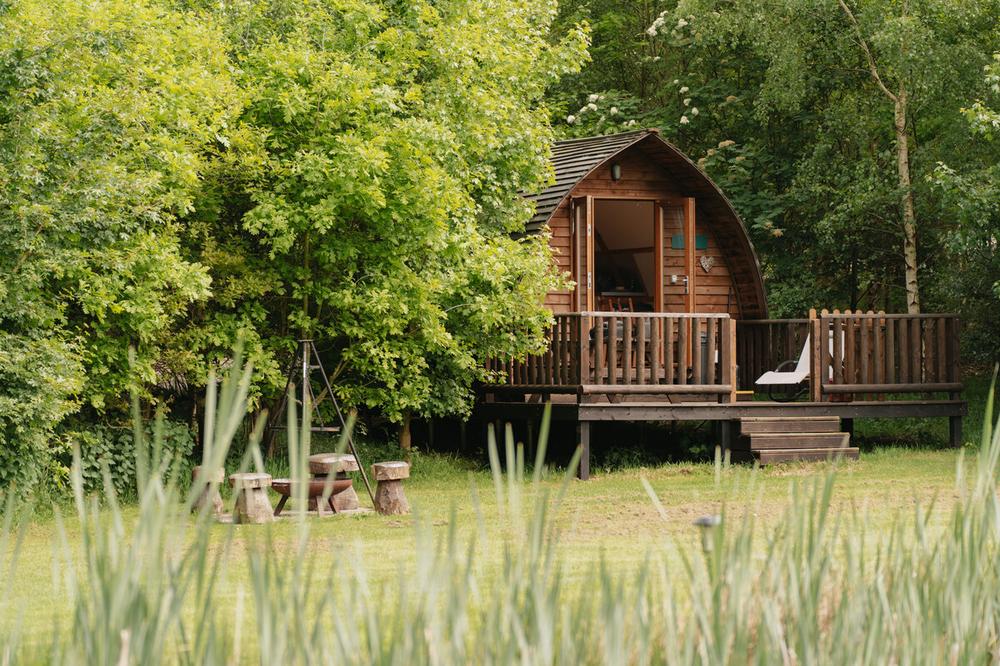
The outdoors means everything to me. It is the place where you can be yourself completely. It is a place where you can be on your own if you want. You can be with groups of people. You can be in all weathers. It's beautiful. It's harsh. It's a really hard thing to explain because it means it means so much. It's impossible to put it into words, but the day that I can’t be outside and enjoying the outdoors is a day, quite frankly, that I don't want to see.
Feel At Home, Outdoors in the UK's most stunning and remote locations:

